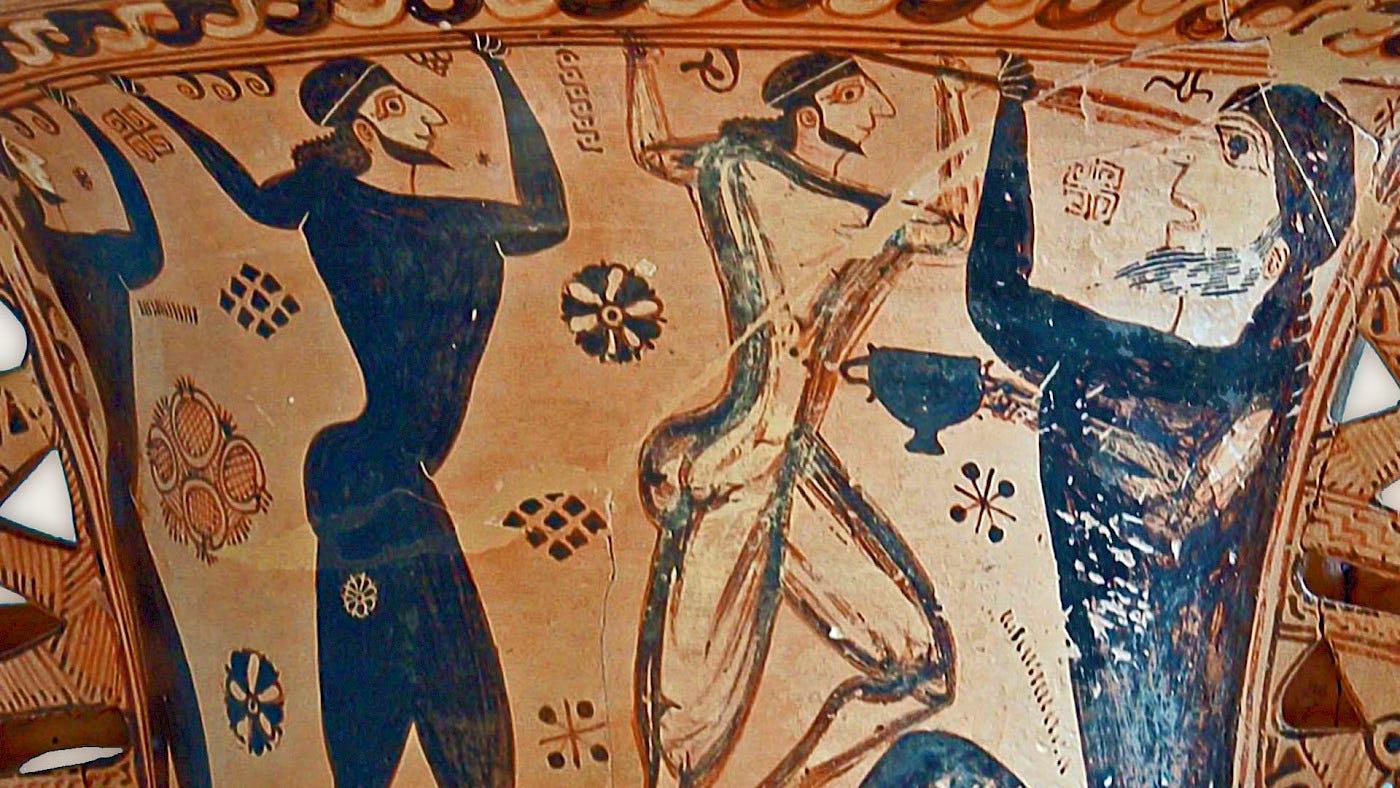In my younger and starry-eyed years, like many other Jules Verne readers, I only knew Nemo as the daring and somewhat megalomaniacal captain of a submarine called Nautilus. It wasn't until later, while I was expanding the field of knowledge and therefore increasing the horizon of ignorance, that I realized the name was an homage to The Odyssey by Homer. This ideal everyman is found in many significant stories, creating what is known as the Monomyth, the framework that underpins all legends, fairy tales, spiritual awakenings, and of course organized religions. You can learn more about this concept in The Hero with a Thousand Faces by Joseph Campbell.
In fact, the disputed title of the books of books, the one you would want to have with you on a desert island, is not the Bible of King James–an overrated glob attempting to combine the ancient Jewish Torah with the whopper of a prophet that the historical records of that time don’t even mention–but the epic story of a war hero, who tried to get home with his brothers-in-arms, while a storm threw them off course to an adventure through the Mediterranean Sea in which no one was spared but him.
To make a long story short, Odysseus and his crew found themselves trapped behind a boulder in the cave of the godlike Cyclops Polyphemus, who–rather than being a good host–had already eaten six sailors; Odysseus thought about a clever ruse to save his skin and the rest of his men. He tempted the Cyclops with plentiful wine, a mysterious delicacy that the giant savored as if it were ambrosia and nectar. The guard of the giant waned as he inquired about Odysseus' identity and pledged a generous gift.
“My name is Nobody,” the Greek sailor said and asked for the promised gift too, which was no other than eating him the next morning, only after the rest of the crew. So, Odysseus blinded the Cyclops in his drowsiness "with a piece of olive wood that he put into the fire and held it there until it was a glowing coal." When Polyphemus howled with pain and bellowed in rage, the rest of the Cyclopes came running to his lair while he yelled: “Nobody is trying to kill me!”
Of course, such words were taken as pure nonsense for the rest of the one-eyed Cyclopes who thought he’d gone barking mad. The next morning, when the blinded Polyphemus moved the cave boulder to let the sheep out to graze, Odysseus and his crew, hidden under the bellies of the flock, managed to escape and boarded their ship as fast as their legs would carry them.
As soon as everyone was on board, Odysseus boldly unveiled his real name to Polyphemus out of sheer hubris. Enraged, the giant hurled a massive boulder from the shore with all his might, narrowly missing the ship. He then fervently beseeched Poseidon, the god of the sea, to seek revenge on his behalf.
Given that the Romans retold the Greek story at its convenience, changing Odysseus for Ulysses, based on an oral tradition that transcended languages and ancient borders, Nemo was the name of Nobody that had been successfully adopted.
All the above hit me like a lightning bolt while I was crafting the punchline for the latest podcast. But my life partner didn't take it as a lighthearted joke. She accused me of lying through my teeth, much like a meticulous journalist might. In hindsight, her accusation isn’t far from the truth–my American beauty wouldn’t dare call me ‘Mr. Nobody.’ The naked truth is that it’s something I do to myself when a publisher rejects my manuscript after years of hard work and countless drafts without deigning to write a letter. Fiction writers, after all, often blur the lines between reality and poetic license. Truman Capote captured it perfectly: "Never let the truth get in the way of a good story."
Furthermore, I’d never claim to have written a single essay. For me, using the first person implies a biased point of view, and that’s the beauty of auto-fiction. This genre weaves reveries with facts, confessions with thoughts, creating a unique blend, a mélange. My favorite authors, such as Marcel Proust, William Faulkner, Yukio Mishima, and the one-and-only Virginia Woolf, made virtuoso displays of writing and their works were far truer than any journalism. Sometimes, it is a dark art. Should I recall the unhinged readers of JD Salinger donning the iconic red hunting hat outside his Park Avenue townhouse? This is why he moved into a falling-down barn on a rocky knoll in Cornish, New Hampshire.
That being said, the internet has brought about a magma of misinformation, fostering the paranoid conspiracy genre, rewriting history with political agendas, and spreading lies about decent individuals with viral intensity. We live in a strange era where everyone feels entitled to shout out their crass ignorance from the rooftops with unwavering conviction. Remember the January 6 attack on the United States Capitol, where each member of that mob had a different, raving, and incoherent motivation and brazenly thought they could get away with murder. In a bizarre twist or irony, many of them recorded their criminal activities with their iPhones, even pausing to take stupid and narcissistic selfies that ultimately made it easier for law enforcement to identify and apprehend them.
The only way to protect Western civilization from this deadly lava flow is with good and efficient journalism. But not founded by political parties or any government, who shamelessly take advantage to place their servile pawns, which is not precisely speaking truth to the power. Otherwise, we are going back to black and fast. I mean, to the dark thirties of the last century, when the lack of moral fiber led them to think to a bunch of softies and appeasers of fascism that the juice wasn’t worth the squeeze.
I am settled in a Mediterranean beach town mostly because of the turquoise waters, but not because I feel the colors of a bloody rag, or I should feel a particular attachment to a highly subjective identity. Lucky me, I have been successfully vaccinated against any patriotic nonsense since my late teens, after volunteering in the Airborne Squadron like a runaway kid. Since then, I always remember the wise words of the English writer Samuel Johnson: “Patriotism is the last refuge of the scoundrel.”
I tell you what. If the alt-right wins the next elections thanks to the hate speech, after paying fortunes to writers-for-hire in order to churn out fake news and abounding in the constant demonization of the Other, I swear I will look up the closest Point Nemo–no pun intended–a geographical term, also known as a pole of inaccessibility.














Share this post